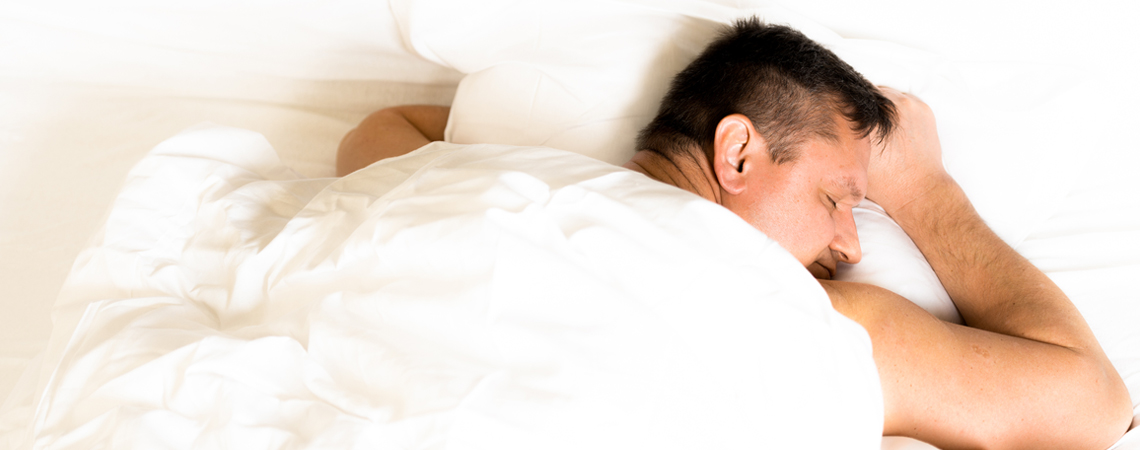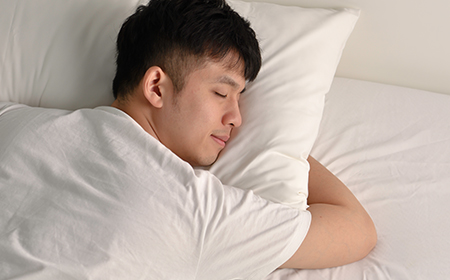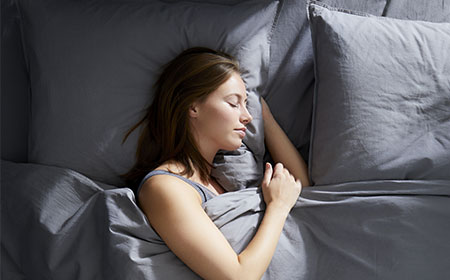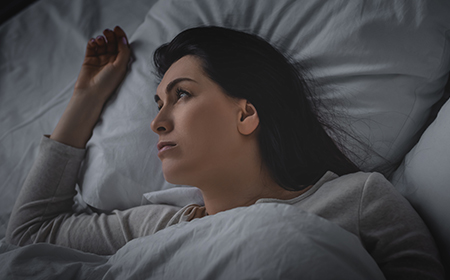Maybe you know the feeling of a tired body after a long day of physical activity. Your back is aching and your feet are sore. Your muscles are begging for a good night's sleep. And like magic, the next morning you wake up all refreshed and ready to perform. What has happened during the night? What physiological functions and processes have been going on in your body while you were sleeping? We have some answers for you in this blog post.
Breathing, blood pressure and heart rate
Around bedtime, your normal physiological processes slow down. You take fewer breaths per minute, and your heart rate slows down. The normal heart rate for a resting adult is 60–100 beats per minute but during sleep 40–50 beats per minute is normal. Your blood pressure drops too. However, all the different sleep phases that you go through during the night affect both breathing, blood pressure and heart rate in different ways.
Your hormones during sleep
While you are asleep, less adrenaline is pumping through your veins. On the other hand, your levels of growth hormones increase. Adults of course don't get any taller. Instead, the growth hormones help tissue growth and repair. Experts estimate that up to 75 percent of the growth hormones is released during sleep so your body and muscles can restore and rebuild.
The hormones that help you control your appetite also increase, so sleeping is actually a really convenient kind of diet. The level of the so-called Antidiuretic Hormone (ADH) grow too, and causes your kidneys to release less water. That is why your need to urinate decreases, and you don't have to get up several times at night to go to the bathroom.
Your muscles during sleep
During sleep, the blood supply to your muscles increases. In fact, 40 percent of the usual blood flow to your brain is redirected to your muscles instead to restore energy and help any necessary healing processes.
During the REM sleep, you literally cannot move a muscle. Only the muscles that control your eyes and your breathing are mobile. This way you prevent yourself from acting out your dreams (which is very helpful in case you are playing the lead character in a nocturnal action movie). This paralysis can last up to 20 minutes.
Your muscles might also perform a "Hypnic jerk". This is an involuntary twitch that often occurs when you are just on your way to Shangri-La. You suddenly jump and wake up for a moment. There is no a good reason for these movements.
Long story short: Your body might rest, but still it does a lot of important work while you are asleep. If you are having trouble falling asleep or staying asleep for a longer period, it is important that you consult a professional to find a solution. A doctor can make a diagnosis and treat any medical conditions.
Sources
http://healthysleep.med.harvard.edu/healthy/science/what
https://www.sleepfoundation.org/sleep-news/25-random-facts-about-sleep




